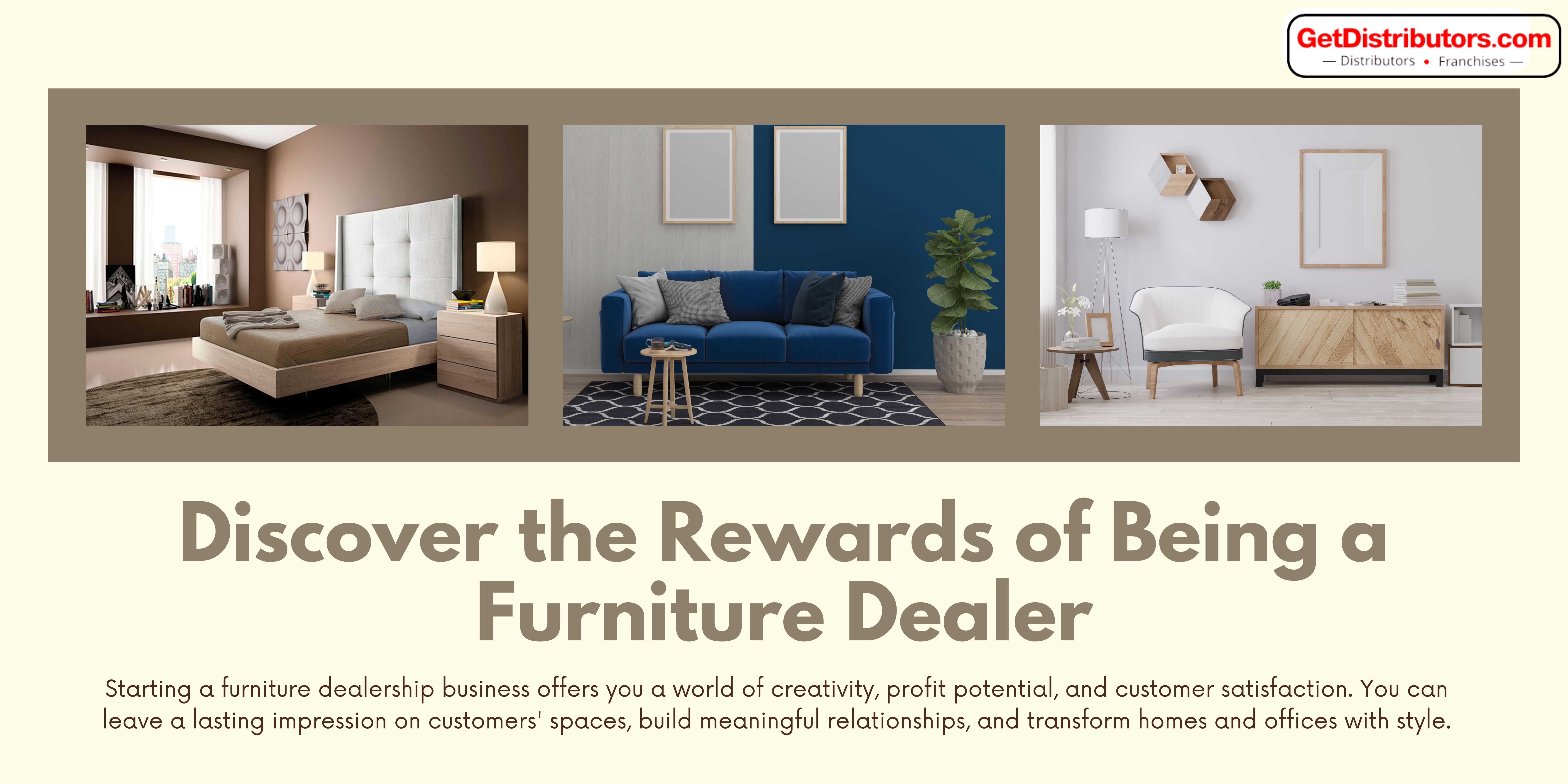Discover the Rewards of Being a Furniture Dealer
The furniture industry is a large and growing market, with continuous demand for furniture in homes, offices, commercial buildings, hospitality establishments, and other sectors. This presents innumerable opportunities for consistent sales and revenue generation. Being a furniture dealer can offer several benefits. Here are some advantages of running a furniture dealership business:
Extensive Product Range: As a furniture dealer, you have the flexibility to offer a diverse range of furniture products to cater to different customer preferences, tastes, and needs. This allows you to target various customer segments and increase your market reach.
Healthy Profit Margins: By sourcing products from manufacturers or suppliers at competitive prices and setting the right pricing strategy, you can achieve healthy profit margins on your sales.
Creative Expression: As a furniture dealer, you can curate a unique collection of bedroom fruniture, outdoor furniture, school furniture, Hotel furniture pieces, explore different design styles, and showcase your taste and aesthetic sensibilities.
Repeat Business: Furniture is a long-term investment for customers, which means that once they have a positive experience with your products and services, they are likely to return for future purchases. Building a loyal customer base can lead to repeat business and word-of-mouth referrals.
B2B Opportunities: Furniture dealerships often have the opportunity to cater to the business-to-business (B2B) market. This includes supplying furniture to offices, hotels, restaurants, educational institutions, and other commercial establishments, which can result in bulk orders and ongoing contracts.
Valuable Industry Relationships: Operating as a furniture dealer allows you to develop relationships with manufacturers, suppliers, and other professionals in the industry. These connections can provide valuable insights, access to exclusive products, and potential collaborations.
Flexibility in Business Models: You can choose different business models for your furniture dealership, such as brick-and-mortar showrooms, e-commerce platforms, or a combination of both. This flexibility allows you to adapt to changing market trends and customer preferences.
Interior Design Collaborations: Collaborating with interior designers, architects, and contractors can be beneficial for a furniture dealer. Such partnerships can lead to referrals, increased exposure, and access to larger projects.
Personal Satisfaction: Lastly, being a furniture dealer can be personally fulfilling, especially if you have a passion for furniture and design. It allows you to connect with customers, help them create beautiful and functional spaces, and make a positive impact on their lives.
It’s important to note that running a furniture dealership also comes with challenges, such as managing inventory, competition, and customer service. However, with proper planning, market knowledge, and dedication, the benefits can outweigh the challenges, making it a rewarding business venture.
Also Read: Exclusive Range Of Outdoor Furniture At Reasonable Rates
Here are some steps to help you get started:
Research and Planning:
- Conduct market research to understand the demand for furniture in your area, target customer segments, and competition.
- Identify the types of furniture you want to sell and determine your niche (e.g., contemporary, antique, office furniture).
- Create a business plan outlining your goals, target market, marketing strategies, financial projections, and operational details.
Legal Considerations:
- Register your business as a legal entity and obtain the necessary licenses and permits required in your area.
- Consult with an attorney or business advisor to ensure compliance with local regulations and tax obligations.
Location and Showroom:
- Find a suitable location for your furniture dealership. Consider factors such as visibility, accessibility, and proximity to your target market.
- Set up an attractive showroom that showcases your furniture offerings effectively. Create different sections for different types of furniture and appealingly arrange them.
Suppliers and Inventory:
- Establish relationships with reliable furniture suppliers or manufacturers. Research and negotiate pricing, quality, and delivery terms.
- Maintain a diverse inventory to cater to different customer preferences and budgets. Start with a manageable range of products and grow gradually as your business expands.
Pricing and Profitability:
- Determine competitive yet profitable pricing for your furniture. Consider factors like manufacturing and shipping costs, overhead expenses, and desired profit margins.
- Regularly review and adjust your pricing strategy based on market trends, customer demand, and profit goals.
Marketing and Advertising:
- Develop a comprehensive marketing strategy to promote your furniture dealership. Utilize a mix of online and offline channels such as social media, websites, local advertising, and partnerships.
- Create an engaging website showcasing your furniture collection, providing information about your business, and enabling online purchases if applicable.
Customer Service and Relationships:
- Provide excellent customer service to build loyalty and positive word-of-mouth. Offer personalized assistance, after-sales support, and flexible return or exchange policies.
- Establish relationships with interior designers, architects, and contractors who can refer customers to your dealership.
Operations and Staffing:
- Set up efficient inventory management systems to track stock levels, monitor sales, and reorder products as needed.
- Hire knowledgeable and customer-oriented staff who can provide product information, assist customers, and handle administrative tasks.
- Implement effective systems for logistics, deliveries, and installations if applicable.
Continuous Improvement:
- Stay updated with furniture trends, design styles, and customer preferences through industry publications, trade shows, and networking.
- Seek feedback from customers and adapt your offerings and services accordingly.
- Continuously evaluate and improve your business processes to enhance efficiency and customer satisfaction.
Also Read: Manav Steels Offers Durable Furniture at Cost Effective Prices
Starting a furniture dealership business offers you a world of creativity, profit potential, and customer satisfaction. You can leave a lasting impression on customers’ spaces, build meaningful relationships, and transform homes and offices with style. Embrace the joy of furniture entrepreneurship and embark on a path where imagination meets functionality.






